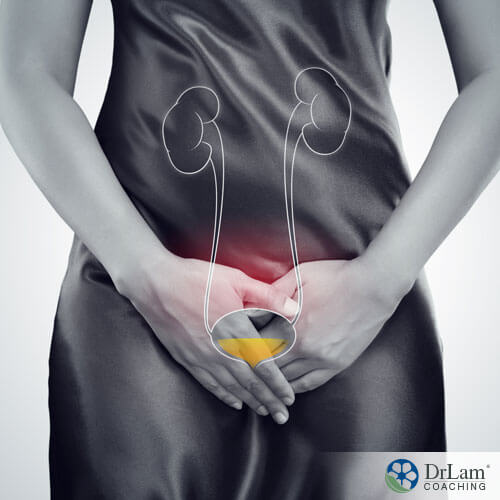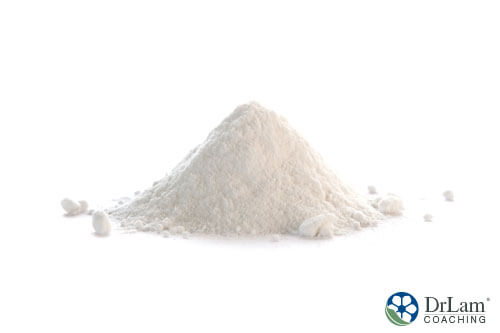 Statistics suggest that about 50 to 60 percent of women will develop a UTI in their lifetimes, an uncomfortable reality for most adults. Usually caused by the Escherichia coli bacteria, urinary tract infections are a terrible inconvenience. They account for almost 25 percent of all infections, making them the most prevalent clinical infections in women. Amidst growing interest in these conditions, a few studies seem to suggest that D mannose can help reverse urinary tract infections (UTIs).
Statistics suggest that about 50 to 60 percent of women will develop a UTI in their lifetimes, an uncomfortable reality for most adults. Usually caused by the Escherichia coli bacteria, urinary tract infections are a terrible inconvenience. They account for almost 25 percent of all infections, making them the most prevalent clinical infections in women. Amidst growing interest in these conditions, a few studies seem to suggest that D mannose can help reverse urinary tract infections (UTIs).
D mannose is a simple sugar that is structurally related to the more popular glucose molecule. Some of it occurs naturally in your body but most of it is obtained from certain fruits and vegetables. Fruit sources include:
Vegetable sources include:
Other sources include:
D mannose is said to be a prebiotic because its consumption promotes the growth of good bacteria in your gut. Although it is structurally similar to glucose, it is absorbed much more slowly in the gastrointestinal tract. This is because it has to be converted into fructose first, and then glucose, to prevent a negative insulin response in your blood sugar levels. Unlike glucose which is stored in the liver, mannose does not stay in the body for too long. It is excreted from the system through the kidneys.
For generations, people with UTIs have been encouraged to drink cranberry juice whenever the symptoms begin. To a large extent, this has been mostly attributed to the high levels of D mannose in cranberry juice.
Urinary tract infections (UTIs), which may occur anywhere along the urinary tract, can be caused by sexual intercourse, the use of spermicides, overusing antibiotics, impaired immune system, and poor hygiene. The most common cause, however, is when E. coli bacteria is transferred from the intestinal tract to your urinary tract. Standard remedies involve the use of antibiotics, but these have been shown to gradually destroy the beneficial bacteria that prevent the growth of destructive pathogens. Additionally, overusing antibiotics can result in the development of antibiotic-resistant versions of bacteria such as E. coli, which are even more difficult to eliminate. In a bid to find more suitable alternatives, natural aids such as D mannose have become increasingly popular over the last few years.
A study done by the World Journal of Urology in 2014 showed that d mannose can help prevent recurrent UTIs. It does this by attaching itself to E. coli bacteria, which causes them to stick together instead of mounting against the urinary tract walls. This makes it easier to eliminate the bacteria from the system during urination. Symptoms are usually alleviated within 48 hours of administration. Taking the dose during the most vulnerable time, such as before sexual intercourse, can also help prevent the development of UTIs.
 The typical dosage of D mannose for preventing UTIs is 500 mg, either in powder or capsule form, taken with a glass of juice or water every 2-3 hours for five days. Dosage should continue even after the symptoms have subsided to ensure that the bacteria are completely eliminated from the urinary tract.
The typical dosage of D mannose for preventing UTIs is 500 mg, either in powder or capsule form, taken with a glass of juice or water every 2-3 hours for five days. Dosage should continue even after the symptoms have subsided to ensure that the bacteria are completely eliminated from the urinary tract.
It is important to note that previous studies have not been conclusive in determining the impact of D mannose in reversing UTIs. More studies are needed to calculate precise dosages and evaluate how the supplement interacts with other medications. UK's National Institute for Health Research is currently planning a study on the connection between D mannose and UTIs. The study will involve 508 women, with half of them receiving D-mannose supplements and the other half receiving a placebo. Scheduled for completion in 2020, this research may be instrumental in helping us understand how this remedy affects urinary tract infections.
Participants taking D mannose in one study experienced diarrhea as the only side effect, but it was not too severe to discontinue using the supplements. However, pregnant women are susceptible to complications related to its usage. It is therefore important to consult with your doctor before taking any new supplements.
Stress can have a major influence on urination in the body, and this is mediated by the adrenals. Situated just above the kidneys, adrenal glands are one of the most important organs in the body. They play a major role in ensuring good health and proper functioning of your body. They produce adrenaline, DHEA, and cortisol hormones, which are completely responsible for your stress response mechanism.
Another very significant hormone produced by the adrenal glands is aldosterone, which is responsible for regulating sodium and water levels in the body. Adrenal fatigue affects the production of aldosterone. Frequent urination usually occurs when levels of this hormone are too low. Apart from reduced production of aldosterone, chronic stress (either physical or emotional) can also cause frequent urination.
Since the brain is partly responsible for regulating aldosterone, its secretion can be affected by any type of mental or nervous stimulus. During physical stress, stress hormones such as cortisol, glucagon, and epinephrine are produced in abundance. Epinephrine is released when your body experiences short-term stress, which in turn increases urine flow. Cortisol levels, on the other hand, increase under chronic stress and subsequently cause ADH (anti-diuretic hormones) to decrease.
This change increases urine flow once again. Cortisol levels may reduce if your body stays under constant stress for too long. As the symptoms of adrenal fatigue progress, aldosterone production drops as well, causing increased urination once again. In the long run, loss of sodium, extreme fatigue, and increased urination take precedence, sometimes accompanied by dehydration.
When the body is under too much stress, the adrenal glands react by producing excessive stress hormones. If the stress is not reduced, Adrenal Fatigue Syndrome (AFS) ensues. The result is a weakened immune system and, subsequently, constant fatigue and a myriad of other conditions.
Most of the stress response action takes place along the hypothalamic-pituitary-adrenal (HPA) hormone axis in the brain. This is where stress signals are transported and converted into chemical messengers known as neurotransmitters before being sent to the target organ. These compounds keep the brain on guard and prompt the heart to pump more blood during periods of stress. Your body needs a functional HPA axis to properly deal with stress.
The key to overcoming frequent urination is increasing hydration while maintaining your electrolyte balance. Failure to regulate your sodium levels can lead to dilutional hyponatremia, a serious condition that may cause lethargy and stupor in the long run.
 Since adrenal fatigue is usually accompanied by low blood pressure, it is important to incorporate proper electrolyte and fluid replenishment in order to raise your blood pressure and get renewed energy. Hydrate yourself regularly, even when you are not feeling thirsty. Thirst is often an indication that your body is already dehydrated. Most importantly, steer away from drinks that have a net diuretic effect, such as coffee.
Since adrenal fatigue is usually accompanied by low blood pressure, it is important to incorporate proper electrolyte and fluid replenishment in order to raise your blood pressure and get renewed energy. Hydrate yourself regularly, even when you are not feeling thirsty. Thirst is often an indication that your body is already dehydrated. Most importantly, steer away from drinks that have a net diuretic effect, such as coffee.
Of course, the best way to overcome polyuria is by dealing with the underlying condition. In the case of AFS, this involves taking stress management measures and incorporating certain supplements to reverse the symptoms. Nutritional substances such as vitamins and minerals can accelerate the recovery process and help you improve the quality of your life. However, keep in mind that some supplements may have a negative effect on your body, especially if you are allergic or intolerant to certain ingredients.
With those considerations in mind, here are some of the most recommended supplements for dealing with frequent urination:
D mannose is one of the most popular alternative remedies for UTIs today. Perhaps the best thing about this natural approach is that, unlike antibiotics, the supplement does not kill beneficial bacteria in the body. What’s more, since it is absorbed in the upper gut, it helps cleanse the bladder without causing any damage in the colon. However, while it is safe for most adults, it can cause some side effects such as bloating, loose stool, and diarrhea in some people. It is also advisable to avoid using it when pregnant or breastfeeding, as it may cause certain complications.
© Copyright 2021 Michael Lam, M.D. All Rights Reserved.
D mannose is the most popular natural remedy for UTIs today. Several studies have linked the supplement with reduced symptoms of urinary tract infections. Using it regularly can also help prevent the development of UTIs. Since it is absorbed in the upper gut, it helps cleanse the bladder without causing any damage in the colon.
